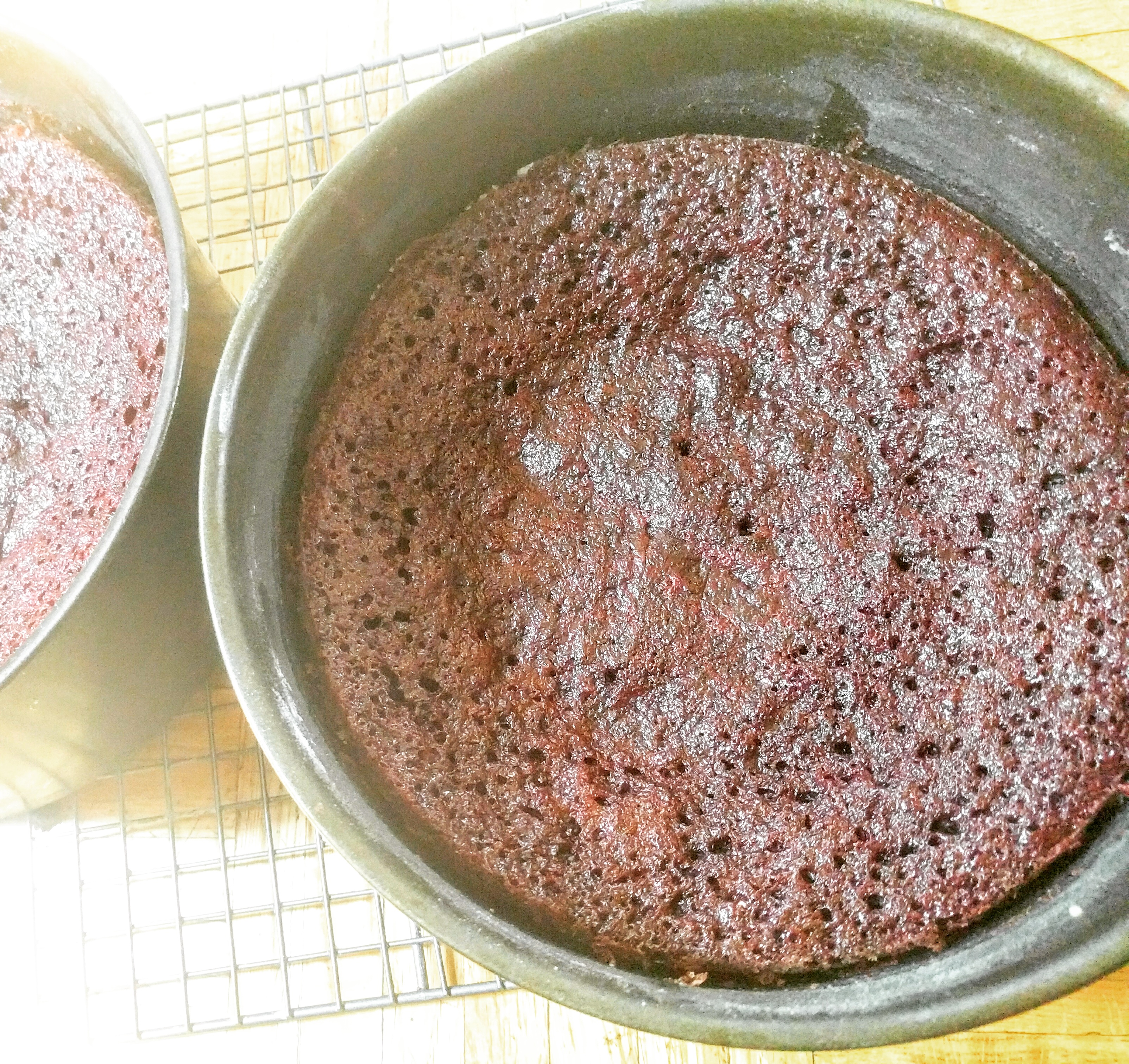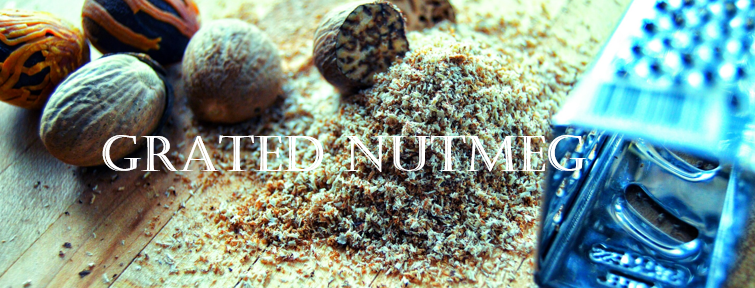Why Did my Cake Sink in the Middle?

One question I get a lot is why did my cake batter sink in the middle? Unfortunately, only the baker can answer this question as there are several factors which lead to cakes sinking. Tracing your steps back should make you realize where you went wrong during the mixing and baking stages. I have enumerated some of the major reasons why cakes sink in the middle below. Avoiding these common mistakes made by bakers should solve the problem. As an aside, a cake which has sunk can still be saved. Its all part of the magic of leveling, patching, filling and frosting. But I’m sure you know this already as a baker.
(1) Too Much Air
In a bid to achieve soft and fluffy cakes, we sometimes go overboard and beat too much air into the batter when mixing. There is such a thing as over-beating when it comes to making cakes. Unless otherwise stated in the recipe, cakes should be beaten at medium speed. If you beat your batter at high speed, you incorporate too much air into it and it would deflate during baking. 5 minutes is more than enough time to cream your sugar and butter if using the creaming method. There are other ways of achieving soft and fluffy cakes without over-beating. I have a post here which covers this topic.
(2) Too Much Liquid
Baking is all about ratios. The more you bake, the more you understand the science of cakes and how to modify recipes without compromising the structure of the cake you are baking. If ever in doubt, follow a recipe religiously. Adding too much liquid ingredients or not enough dry ingredients will make your cake structure weak and lead to it sinking in the middle during baking. Always substitute wet or dry ingredients when you take them out of recipes. If reducing the eggs in a recipe for instance, that is less liquid. Are you going to make this up with more milk?
(3) Too Much Heat/Not Enough Heat
High heat could make your cake sink in the middle. This is because high heat will make the cake rise faster than it ought to which in turn will lead to a weak cake structure. Such a cake will begin to sink as it cools down. The same applies to not enough heat. Without enough heat, your cakes will not rise as quickly as they are supposed to and will most likely sink as they bake. Be sure your oven is set to the right temperature always. If possible, get an oven thermometer to ensure your oven is not too hot or too cool. Unless otherwise instructed in the recipe, cakes should be baked in the middle rack of the oven. Most cakes bake at 350 degrees F/180 degrees C. Always preheat your oven before baking.
(4) Too Much Batter
Over filling your cake pan with batter could lead to the cake sinking in the middle during baking. This is especially so when there is a spill during baking as the cake rises. If multiplying a recipe, be sure to use appropriate pan sizes to ensure that the cake does not implode as it bakes.
(5) Too Much Leavening/Old Leavening
Adding too much baking powder or baking soda to your cakes will make them sink after baking. This is because the batter will be made to rise above its capacity and will start to deflate as it cools. Try your best to stick to leavening quantities suggested in recipes. Also make sure that your baking powder/soda is fresh and active. The older they get, the weaker they become. Also, do not interchange baking power for baking soda and vise versa in recipes.
(6) Opening Oven Door Prematurely
There are certain stages during baking where you should not open the oven door. Opening the oven door will lead to loss of heat which in turn will interrupt the baking process. Heat is what reacts with your leavening to make cakes rise. Once the process of rising has been interrupted, your cake would start to implode. As a general rule, I hardly open my oven until after 25-30 minutes of baking. You want to open your oven after the cake has built a firm structure and not while it is still wobbly in the middle.
(7) Inserting a Tester Too Soon
Most of us use testers to see when a cake is ready. This could be a toothpick, skewer, knife or metal tester. Before inserting a tester into your cake, press the top of the cake gently with your fingers. You should be able to tell if the middle is still soft. If a tester is inserted into an under cooked cake, it would create a hole in the cake from which air will escape and which in turn will lead to the cake deflating. You can often tell when your cake is ready by pressing it gently. If it springs back up, it most likely is ready. You will understand this art the more you bake.
(8) Taking the Cake Out of the Oven Prematurely
When cakes are taken out of the oven before they are ready, they most often start to sink in the middle as they cool. Be sure your cake is fully baked before taking it out of the oven.
(9) Idling Batters
As much as you can help it, try not to mix batters and leave them sitting around before placing them in the oven. At times we want to work smart, mix a large batch of batter and bake in batches. Most leavening agents start working as soon as they come in contact with liquid. Cakes should be placed in the oven as soon as they have been mixed. Idling and baking long after a batter has been mixed would lead to the batter deflating during baking.


Thanks Terry, this is very helpful.
You are welcome Ivie.
Thanks Terry for the tips!!
I can relate really well with point 9. Since I started to mix my batter as when I need to bake I can see a massive good difference in the outcome of my cakes.
Thanks for sharing Liz.
Terry, you’re sweet.
More grease!
Thanks Elizabeth.
Thanks Terry. Very Helpful
You are welcome Iphy.
fnks u terry for dis hlpful tip. lots of luv
Thanks Hallela
Thanks for the tips. Bless u
You are welcome Edirin.
Thanks so much. God bless
You are welcome Najibat.
This is what happen to me now. Thanks in million
You are welcome Hauwa.
Tnx Terry.
Wanted asking u question out of ds particular post.
Pls hw could I get an healthy for someone dt dnt want sugar, cholesterol butter in his cake.
Can I use brown sugar and unsalted butter?
Pls what kind of cake do I think I shld make for the person.
Tnx In Advance.
Hi Jumai, I’m not a health expert or dietitian. Unfortunately I can’t answer your question. But brown sugar is not healthier than ordinary sugar.
Thank u so much sir, u will never have an unanswered question in your life, ijmn
Thanks Jasmyn.
Hey terry what makes cake dry when u leave them to cool after baking
The don’t get dry per say, they firm up and set. Its natural. Moisten them with a simple syrup before frosting.
Thank you so much, im really learning thank u
You are welcome Idah.
May God bless you for all you do, Terry, for giving so much of yourself to others.
Thanks Joy.
Thanks so much Terry May God bless you
Thanks.
Oh Dear, I can so relate to 7, I once inserted a skewer to check and it was not done, and right before me my nicely risen cake just sank.
I had to redo the cake.
It can be frustrating. At least now we know what not to do.
Oh, I just sent you a question on this before reading this. It just happened to me now. How do we then remedy it esp when we don’t want to frost it. Thanks for the explanation